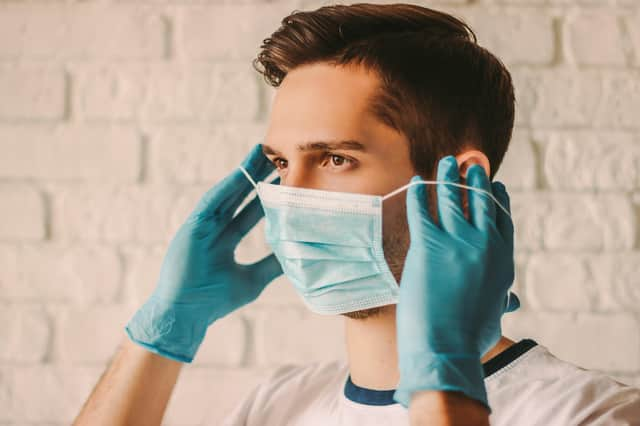NHS Lothian responds to unprecedented pressures on services and staffing


NHS Lothian said staffing pressures and unprecedented demand are causing challenges across the whole system, both in the community and acute hospital sectors. Increased levels of general staff sickness, annual leave and self-isolation led to a significant reduction in nurses and midwives during June and July.
Those shortages, combined with rising numbers of patients has led to longer waiting times and caused non-urgent elective procedures and non-urgent outpatient appointments to be postponed.
Advertisement
Hide AdAdvertisement
Hide AdProfessor Alex McMahon, nurse director, NHS Lothian, said: “The pandemic has taught us to reconsider ‘normal’ and teams across Lothian are investigating ways of streamlining services and working smarter to ensure we can continue to deliver the best possible care for our patients.
“However, everyone has a part to play and we are asking people to remember that the way we access urgent care has changed. If you think you need to visit A&E, but it's not life threatening, or you think you need to visit a Minor Injury Unit, call NHS 24 on 111 first, day or night.
“NHS 24 will direct you to the right care in the right place, and we are working with them to provide appointments for minor injury assessments to reduce the length of time spent in busy hospital waiting rooms.
“It is important too to remember that there is self-care information on NHS Inform, and local pharmacies, GPs or dental practices or opticians might be the most appropriate route to treatment and care. If it is an emergency always call 999 or go to your local A&E.”
Advertisement
Hide AdAdvertisement
Hide AdNHS Lothian has outlined a range of measures to mitigate pressure being faced across the system. Around 460 new nurses are expected to start over the next two months, while extra admin and domestic support has been enlisted to allow clinical staff the time they need to work with patients.
The new starts will join an increased number of health support workers who have formed special “bed-busting” teams who work across sites to ensure that patient transfers are facilitated and that beds are made ready.
Extra staffing and new pathways will take time to bed in, but shorter-term measures are being put in place to ensure that staff can continue to deliver patient-centred care for those people who need it most.
On a day to day basis, staffing levels are monitored routinely and decisions are taken at safety huddles in relation to how to best deploy staff across a site, partnership or on pan Lothian basis.
Advertisement
Hide AdAdvertisement
Hide AdStaff are being offered extra shifts, if they choose, to help maintain the required mix of skills and experience and wards which have fewer numbers of hospital patients are being merged to maximise safety and staffing. Non-urgent outpatient appointments and elective procedures have also been postponed so that clinic and theatre staff can be redeployed to the areas where staffing is needed most.
Professor McMahon added: “We are doing everything possible to mitigate the additional pressures we are facing, however we have to be realistic. These challenges will not disappear overnight. We continue to work through appointments that have already been re-scheduled in recent months and to see people who may have delayed seeking treatment because of COVID-19. This will take time. We also continue to be restricted in the number of people we can see each day because of the enhanced infection control measures in place. COVID is still with us.”
Due to ongoing Covid-19 restrictions in healthcare settings, which still require two metre physical distancing, and restrictions around aerosol generating procedures, the way patients are seen has had to change.
In primary care this means patients may have a phone or video consultation with their GP, which can often be more convenient. If a face to face assessment is needed the patient will be asked to come to the practice. Dental practice appointments have also needed to be reduced so patients may have to wait longer for check-ups.
Advertisement
Hide AdAdvertisement
Hide AdProfessor McMahon added: “The measures we have put in place over recent weeks are absolutely essential to allow us to continue to provide safe and effective patient care and we are urging everyone to work with us and support us as we move through this new phase.
“Our staff have been working on the frontline since the start of the pandemic and we cannot praise and thank them enough for the ways that they are continuing to rise to every challenge placed in front of them. We are also really grateful to everyone in Lothian for their continued support and patience.”